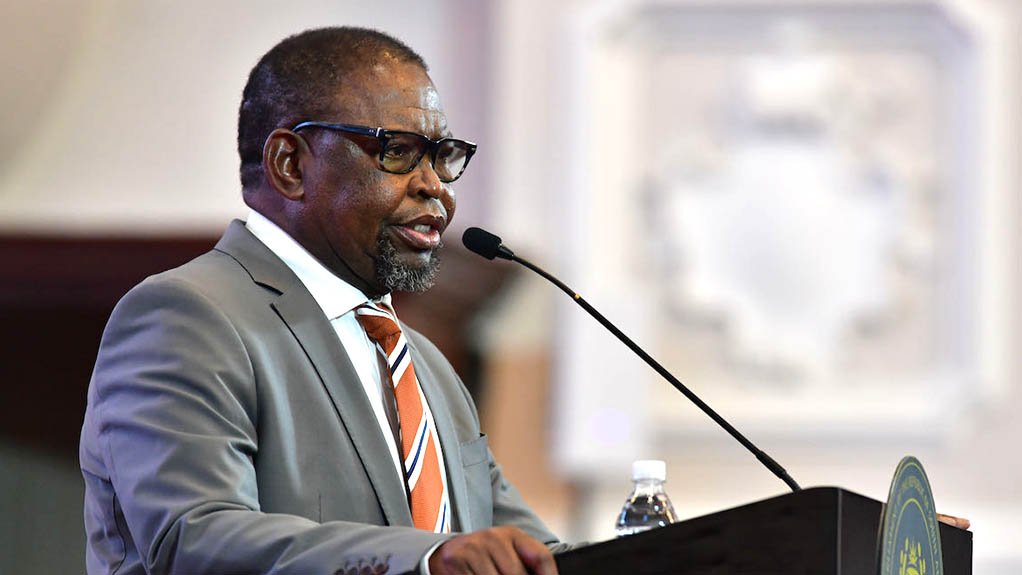Restructuring to bring an end to Land Bank's debt default position
State-owned agricultural finance institution the Land Bank has concluded a debt restructuring solution with all its lenders, which will take effect on September 16, and effectively end its debt default position.
Government provided R10-billion to stabilise the bank and alleviate the contingent liabilities through the settlement of the State-guaranteed lending, as well as to allocate R3.7-billion from these funds towards the Blended Finance Scheme to support the bank’s agricultural development and transformation mandate.
The Department of Finance ensured that the bank found self-help measures while keeping fiscal support to a minimum. However, the bank's funding model remains a priority going forward, said Finance Minister Enoch Godongwana.
The new operating model, led by CEO Themba Rikhotso and his executive team, with strong board support, will be central to this journey.
The size of the Land Bank's non-performing loan book was more than 50%, or about R8-billion, of the total R17-billion. This was a significant concern and focus for the bank and was one of the contributing factors for the Land Bank's default, he said.
"As part of our liability solution, we shared extensive plans with lenders about remediating our non-performing loans and we have various programmes in place to restructure non-performing loans."
The Land Bank would closely monitor these loans and also aimed to cure the curable non-performing loans by supporting clients that showed potential for productive agricultural activities, he said.
"We had to liquidate the good loan book to be able to pay our lenders, and we paid more than 60% of outstanding debt from this. However, our R17-billion loan book is starting to grow again and there are about R1.5-billion, half in grants and half in loans, that have been approved," said Rikhotso.
The Land Bank will make scheduled repayments to lenders every six months through to March 2028. The government's equity contribution will play a critical role in this plan, positioning the bank on a sustainable path forward.
Since its debt default, the Land Bank has repaid over 60% of its debt through cash proceeds from a deliberate reduction of the Bank’s loan book, which was reduced from R45.2-billion in March 2020 to R17-billion by June 2024.
Further, despite the downsizing, Land Bank resumed limited lending activities in October 2022 through the Blended Finance Scheme, which is supported by grant funding from the Department of Agriculture.
With the Liability Solution finalised, Land Bank is now fully focused on executing its turnaround strategy to implement its mandate and to drive development and transformation within the agricultural sector.
Its Turnaround Strategy, which started in its 2023 financial year, is divided into three key phases, with the first stabilisation phase up to 2024 focused on balancing its debt repayment obligations and re-establishing limited lending.
The second consolidation phase, from the 2025 to 2027 financial years, will concentrate on improving operations and strategic execution. During the third growth phase, from its 2028 financial year onwards, the bank will aim for a more diversified funding model and business growth that is focused on expanded development outcomes.
"All parties showed patience and good faith, with lenders respecting a standstill arrangement since the bank defaulted on its debts in April 2020. We believe the solution reached is in the best interest of all stakeholders and the agricultural sector," said Land Bank chairperson Thabi Nkosi.
Further, Godongwana acknowledged that the Land Bank's impact on socioeconomic progress had decreased owing to the temporary halt of its lending activities, but he highlighted that government had taken a measured approach to helping the agricultural bank.
While the bank needs State support, a large part of the bank’s debt restructure solution would be driven through its own remedial measures, Godongwana noted.
"Through its own cash flow from collections and client settlements, the bank was able to repay 60% of its funding liabilities since the debt default, which is a commendable achievement.
"However, this has resulted in the bank’s reduced support of the agricultural sector. Therefore, in providing a total of R10-billion of fiscal support to the bank, we have ensured that a significant portion of the fiscal allocation is dedicated to supporting the bank’s agricultural development and transformation mandate through the deployment of at least R3.7-billion of the capital allocation towards the Blended Finance Scheme," he highlighted.
A closer relationship and collaboration between the bank and the Department of Agriculture, as well as all relevant State departments and entities is required to ensure that coordinated efforts and economies of scale of the State’s entities and the private sector are leveraged to deliver effective impact in the agricultural sector.
"A successful Land Bank contributes significantly to the transformation of the agricultural sector, primarily by financing historically disadvantaged persons and improving their inclusion in the sector.
"A successful Land Bank also closes a market gap that exists during cyclical periods when commercial banks and other financial institutions reduce agricultural loans during times of sector problems and downturns."
The bank was essential to protecting the interests of the sector and the country’s food security, he said.
"The Land Bank serves as a catalyst in the agricultural sector, contributing to development of the rural economies, as well as for the creation and preservation of job opportunities," Godongwana said.
Article Enquiry
Email Article
Save Article
Feedback
To advertise email advertising@creamermedia.co.za or click here
Press Office
Announcements
What's On
Subscribe to improve your user experience...
Option 1 (equivalent of R125 a month):
Receive a weekly copy of Creamer Media's Engineering News & Mining Weekly magazine
(print copy for those in South Africa and e-magazine for those outside of South Africa)
Receive daily email newsletters
Access to full search results
Access archive of magazine back copies
Access to Projects in Progress
Access to ONE Research Report of your choice in PDF format
Option 2 (equivalent of R375 a month):
All benefits from Option 1
PLUS
Access to Creamer Media's Research Channel Africa for ALL Research Reports, in PDF format, on various industrial and mining sectors
including Electricity; Water; Energy Transition; Hydrogen; Roads, Rail and Ports; Coal; Gold; Platinum; Battery Metals; etc.
Already a subscriber?
Forgotten your password?
Receive weekly copy of Creamer Media's Engineering News & Mining Weekly magazine (print copy for those in South Africa and e-magazine for those outside of South Africa)
➕
Recieve daily email newsletters
➕
Access to full search results
➕
Access archive of magazine back copies
➕
Access to Projects in Progress
➕
Access to ONE Research Report of your choice in PDF format
RESEARCH CHANNEL AFRICA
R4500 (equivalent of R375 a month)
SUBSCRIBEAll benefits from Option 1
➕
Access to Creamer Media's Research Channel Africa for ALL Research Reports on various industrial and mining sectors, in PDF format, including on:
Electricity
➕
Water
➕
Energy Transition
➕
Hydrogen
➕
Roads, Rail and Ports
➕
Coal
➕
Gold
➕
Platinum
➕
Battery Metals
➕
etc.
Receive all benefits from Option 1 or Option 2 delivered to numerous people at your company
➕
Multiple User names and Passwords for simultaneous log-ins
➕
Intranet integration access to all in your organisation



















